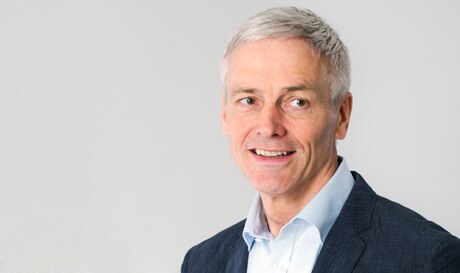In 2012, the focus continued on internal alignment to the sustainability strategy. Through these frequently asked questions, Henrik Sundström, VP Sustainability Affairs explains how Electrolux is striving to integrate sustainability more deeply into the business.

On integrating sustainability into operations and products
Responsibility for implementing the sustainability strategy is split between Group functions and business areas.
Electrolux continues to merge the priorities set in the strategy into Group processes such as product development and operational efficiency. It is also the responsibility of every business area to manage people, the environment and stakeholder partnerships and dialog on public policy issues in line with Group standards. In this way, learning is leveraged across markets while Electrolux continues to meet local requirements.
On the role of Sustainability Affairs
Sustainability Affairs, a Group function, has responsibility for defining and promoting the sustainability strategy. This includes setting targets, raising awareness, dialog and monitoring progress. It is also responsible for engaging stakeholders on sustainability issues and dialog to raise awareness of the role of energy- and water-efficient appliances.
On policies that reinforce our sustainability commitment
The Code of Ethics covers rules of conduct for relations with employees, business partners, shareholders and other stakeholders. It is referred to as an umbrella policy because the Code of Conduct, Environmental Policy and Policy on Countering Corruption and Bribery are all included as elements of the Code of Ethics.
All of the Group’s codes and policies are based on universal standards of doing business, including those of the International Labor Organization. They reflect the Group’s ongoing support of the ten principles of the UN Global Compact.
The Code of Conduct defines high employment standards for employees in all countries and business areas as well as for all subcontractors. It covers, among others, under-age and forced labor, health and safety, workers’ rights and environmental compliance. The Code will be updated in 2013 in part to reflect the UNGP, the human rights impact assessment conducted in 2012 and the revised OECD Guidelines for Multinational Enterprises.
The Environmental Policy outlines the Group’s commitment to improve environmental performance in production, product use and disposal. The policy prescribes the precautionary principle.
The Workplace Standard describes requirements for how operations and suppliers must meet Code of Conduct and environmental criteria. It also gives best practice examples.
On creating a culture of engagement
One Electrolux comprises core values and a foundation of operational values based on these elements: sustainability, safety, diversity, ethics, respect and integrity. Together, they guide how people must treat each other and approach day-to-day business interactions with customers, suppliers and others. Human resource teams reinforce this culture through employee feedback, leadership and employee training and performance appraisals. Local Human Resource teams are crucial for rolling out the Ethics at Electrolux program, with the support of Group Legal and Sustainability Affairs, Human Resources and the Internal Audit function.
Electrolux has internal award schemes, such as the Sustainability Award, as well as safety days and specialized activities focusing on the environment and sustainable innovation. These highlight the importance of commitment and engagement from every individual.
To embed this mindset further in the organization, Electrolux introduced the Purpose program. It aims to engage employees in sustainability objectives and build an understanding of the value Electrolux creates beyond financial and market objectives.
On encouraging high standards upstream, among suppliers
Group Purchasing is ultimately responsible for compliance with the Code of Conduct and Environmental Policy along the supply chain. As an integrated part of the purchasing process, purchasing teams ensure that high social and environmental standards remain mandatory and non-negotiable parts of evaluating potential and existing suppliers.
The Responsible Sourcing Program is a supplier compliance and development function closely linked to Purchasing functions in all regions. It supports local purchasers and suppliers with training, audits and additional activities in Latin America, Europe Middle East and Africa as well as Asia/Pacific. The director of the program reports to Sustainability Affairs.
On the importance of training and monitoring
A robust approach to managing sustainability issues requires training and follow-ups. There are training and awareness activities for employees that cover Ethics at Electrolux, ISO14001 certification, Anti-corruption, the Code of Conduct and Workplace Standard (also for suppliers), safety, and leadership.
These are supported by internal and third party monitoring. Last year, 18 (14) operations were audited by combined teams comprising both Electrolux and third-party representatives. As of 2013, Electrolux will introduce a global provider for ISO and OSHAS certification. This provider will also monitor performance against specific environmental, health and safety provisions as set out in the Workplace Standard.
On managing risks
Electrolux divides risks into operational risks related to business operations, monitored by the internal auditing function and usually managed by each unit; financial risks managed at Group level; and sustainability risks that are monitored through materiality and stakeholder dialog. The materiality process facilitates review and adjustment of risk management over time. Carried out yearly, results feed into priority setting for the coming year.
The Code of Ethics, Code of Conduct and Environmental Policy also help reduce non-financial risk. With rollouts in Latin America and seven countries in Europe complete, by year-end 2012 about 75% of all Electrolux employees had access to the Ethics Helpline in Latin and North America and most European countries, enabling them to confidentially report potential incidents of non-compliance. Rollout is expected to be complete by 2014.
Electrolux maps its operations and suppliers against areas identified by external sources such as Maplecroft. Risk areas include civil and political rights, child labor, forced labor, discrimination, freedom of association, working conditions and corruption.
Countries with high risk include Argentina, Brazil, China, Egypt, Mexico, Romania, Thailand and the Ukraine. Suppliers are located in other high-risk countries as well.
A similar process for mapping environmental risks is also conducted annually. Electrolux has begun mapping areas of water scarcity as of 2012.
Key sustainability-related policies
| Policy | Policy holder* | Policy approver |
| Code of Ethics | VP, Group Sustainability Affairs | Board of Directors |
| Workplace Code of Conduct | VP, Group Sustainability Affairs | Chief Technology Officer |
| Policy on Countering Bribery and Corruption | Senior Associate General Counsel | Senior Vice President, Legal Affairs |
| Environmental Policy | VP, Group Sustainability Affairs | Chief Technology Officer |
| *Responsible for developing, communicating, monitoring and enforcing. | ||

